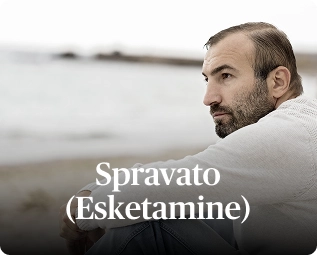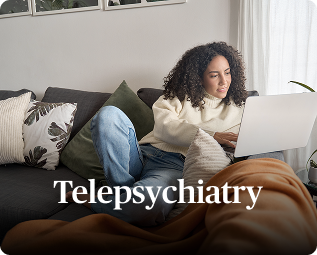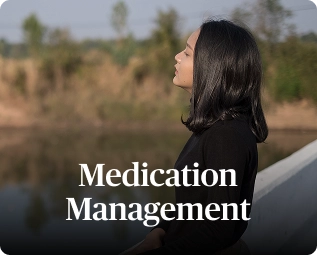Houston Mental Health Clinic
1200 Binz St, Suite 480, Houston, TX 77004
Mindful Health Solutions is dedicated to helping our Houston community find innovative mental health solutions that work. Located near the Museum District and the HCA Houston Healthcare Medical Center, our Houston mental health clinic provides in-office and telehealth services designed to provide rapid relief from depression, Obsessive-Compulsive Disorder (OCD), mood and anxiety disorders, and other conditions.
Services include SPRAVATO nasal spray and Transcranial Magnetic Stimulation (TMS) therapy in Houston, both FDA approved for the treatment of depression symptoms, as well as general medication management. We are also proud to offer our new MindfulONE one-day TMS treatment – consultations available now!
Call one of our Intake Specialists at 346-271-5002 to schedule an appointment today with one of our Houston psychiatrists!
Clinicians on Staff

Bobbi Porche, MD
Psychiatrist

Robert Daboval, MD
Psychiatrist

Datonye Charles, MD
Psychiatrist
Mindful Health Solutions is a leading mental health clinic in Houston, Texas, empowering individuals to overcome challenges and live their best lives. Our team of experienced Houston psychiatrists works tirelessly to ensure that each patient who walks through our doors is treated with the respect they deserve, offering comprehensive mental health services for conditions such as clinical depression, anxiety, OCD, and bipolar disorder.
Our skilled psychiatrists in Houston understand how difficult it can be to navigate the struggles of everyday life when you are experiencing a mental illness, and are dedicated to helping you mitigate those difficulties so you can live your best life. That’s why our clinic has been designed around a comfortable, thoughtful patient experience where we listen to you, creating an individualized plan that may include the most advanced treatments available for treatment-resistant depression, such as Esketamine (Spravato) and Transcranial Magnetic Stimulation (TMS) therapy in Houston—both safe alternatives to antidepressants alone, covered by most insurance plans, and proven to show great results. We also offer our groundbreaking MindfulONE TMS therapy, allowing you to experience the benefits of TMS in just one day.
If you’re unable to come into our Houston mental health clinic, we offer telehealth services in Texas, allowing you to get quality care from the comfort of your home.
Parking:
Our Houston mental health clinic is located near the Museum District and the HCA Houston Healthcare Medical Center. Parking is available in the lot across the street for $7 for the first hour, metered street parking around the clinic for $2 per hour, or valet for $15.
A parking garage is also attached to our building at the following rates:
- 0-30 Minutes: $10
- 31 Minutes – 1 Hour: $12
- 1 Hour – 1.5 Hours: $14
- 1.5 Hours – 2 Hours: $16
- 2 Hours – 24 Hours: $18
Mindful Health Solutions
Contact Mindful Health Solutions to Find Out How SPRAVATO and TMS in Houston Can Help You or a Loved One
Looking for qualified depression treatment clinics in Houston, Texas? Mindful Health Solutions is here for you. Please fill out the form for our Houston mental health clinic and you will be contacted by a member of our team.
You may also call (346) 271-5002 to speak with an Intake Specialist about scheduling a consultation with one of our psychiatrists in Houston. During your initial call, we will review your insurance coverage, potential treatment costs, your mental health concerns or needs, and services offered to help you navigate current struggles.
Insurance
We are in-network with Kaiser, Medicare, and all major commercial insurance plans.
Insurances Accepted








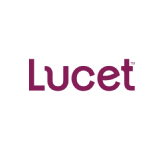
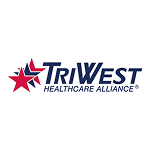
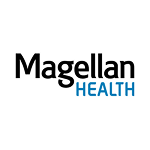

Frequently Asked Questions - Esketamine Nasal Spray
How can I tell if I’m depressed?
Depression can cause persistent sadness, fatigue, loss of interest, and difficulty concentrating. You may be experiencing clinicla or major depression if you:
- Struggle with low energy, poor sleep, or appetite changes
- Feel overwhelmed, hopeless, or easily agitated
- Withdraw from social interactions or hobbies
- Experience suicidal thoughts or self-harm
If these symptoms impact your daily life, consider taking a Depression Screening and seeking professional support.
What is esketamine therapy, and how does it work?
What is SPRAVATO, or esketamine, nasal spray? Esketamine is an FDA-approved nasal spray (Spravato) used for treatment-resistant depression (TRD). Unlike traditional antidepressants, which target serotonin, esketamine works by increasing glutamate, improving brain cell communication and mood regulation.
Why esketamine therapy?
- Works faster than antidepressants (effects may begin in hours or days)
- Helps patients who haven’t responded to other medications
- Administered in a clinical setting under medical supervision
Who is esketamine nasal spray for?
Esketamine is recommended for adults with treatment-resistant depression who have:
- Tried at least two antidepressants without success
- Experienced less than a 50% improvement in symptoms
It is also approved for individuals at risk of suicide.
What does an esketamine treatment session look like?
Esketamine is administered as a nasal spray in a certified clinic.
During a session:
- You self-administer the spray under medical supervision
- You remain at the clinic for two hours for monitoring
- Most patients receive 12 treatments over two months
Because of possible short-term side effects, you’ll need someone to drive you home after each session.
Is esketamine safe, and are there any side effects of SPRAVATO?
Esketamine is safe when used as directed, but like any medication, it has potential side effects.
Common, short-term SPRAVATO side effects:
- Sleepiness or dizziness
- Nausea
- Increased blood pressure
- Temporary dissociation (feeling detached)
These effects usually fade within 1–2 hours. Esketamine carries a low risk of dependence, but regular monitoring by a doctor is required.
How effective is esketamine treatment?
Studies show that esketamine therapy, when combined with an antidepressant:
- Helps 70% of patients experience at least a 50% symptom reduction
- Leads to full remission in 50% of patients
Some patients feel better after just one SPRAVATO therapy session, but most see full results after 12 treatments over two months.
Does insurance cover esketamine nasal spray?
Insurance coverage for esketamine is expanding, but approval varies. Our team will work directly with your provider to help secure coverage. We also offer out-of-pocket payment options for those without coverage for esketamine therapy.
Frequently Asked Questions - TMS Therapy
What is TMS?
What Is TMS Therapy?
TMS (Transcranial Magnetic Stimulation) is a non-invasive, FDA-approved treatment for depression and other mental health conditions. It uses magnetic pulses to stimulate the brain’s prefrontal cortex, which regulates mood. Unlike medications, TMS does not travel through the bloodstream and has fewer side effects. It is a well-tolerated option for those who haven’t responded to antidepressants or prefer a drug-free treatment.
TMS is primarily used for treatment-resistant depression, but research shows it can also help with symptoms of anxiety, OCD, PTSD, migraines, and more.
How does TMS work?
TMS stimulates the prefrontal cortex, which is responsible for mood regulation. Magnetic pulses activate neurons, helping to restore neurotransmitter balance (such as serotonin and dopamine). This can relieve depression symptoms long-term, unlike antidepressants, which only work while in the bloodstream.
What happens in a session?
- You’ll sit in a comfortable chair while a TMS coil is placed on your head.
- The device sends painless magnetic pulses to stimulate brain activity.
- You can watch TV, listen to music, or talk during treatment.
- Sessions last 20–30 minutes, 5 days a week for 4–6 weeks.
- No sedation or downtime—patients can drive home and resume normal activities.
Is TMS safe, and are there any side effects of TMS?
What are the success rates of TMS?
Transcranial Magnetic Stimulation (TMS) has been shown to be more effective than antidepressants for many patients:
- 50% of patients experience a significant reduction in symptoms.
- 30–33% achieve full remission, meaning symptoms completely disappear.
- Many patients start feeling better after 2–3 weeks, with full results after 6 weeks.
Unlike antidepressants, which must be taken continuously, TMS treatments provide long-lasting relief without the side effects of medication.
Will TMS therapy affect my current medications?
TMS treatments do not directly impact medications, but as symptoms improve, some patients may reduce or discontinue antidepressants under medical supervision.
- If you're already on medication, your provider will decide whether to continue or adjust it.
- If you're not taking medication, TMS can be a standalone treatment or part of a combined approach.
- Each treatment plan is personalized to fit your needs.
Your provider will monitor your progress and adjust your treatment plan as needed.
How is TMS different from ECT?
ECT vs TMS - it's important to know that these are not the same! While both TMS and ECT are brain stimulation treatments for depression, they work very differently:
- ECT uses an electrical current to induce a controlled seizure, requiring general anesthesia in a hospital. It’s typically used for severe, life-threatening depression and can cause memory loss.
- TMS uses magnetic fields to stimulate a specific brain area without inducing seizures or requiring anesthesia. It has minimal side effects, and patients can resume daily activities immediately.
Discover a new era of TMS with Mindful Health Solutions. TMS is a non-invasive outpatient option with fewer risks, making it a preferred choice for many individuals.
How can I tell if I’m depressed?
Depression can be debilitating, and early diagnosis is important. Ask yourself:
- Has my sleep, appetite, or energy changed?
- Am I avoiding social interactions or losing interest in hobbies?
- Do I feel agitated, tearful, or hopeless most days?
- Have I engaged in risky behaviors or self-harm?
If these resonate with you, consider taking a Depression Screening and seeking professional help. Early treatment increases the chances of remission and long-term well-being.
Is TMS covered by insurance?
Yes! Most major insurances cover TMS, and we’ll work directly with your insurance provider on your behalf to help you get covered.



